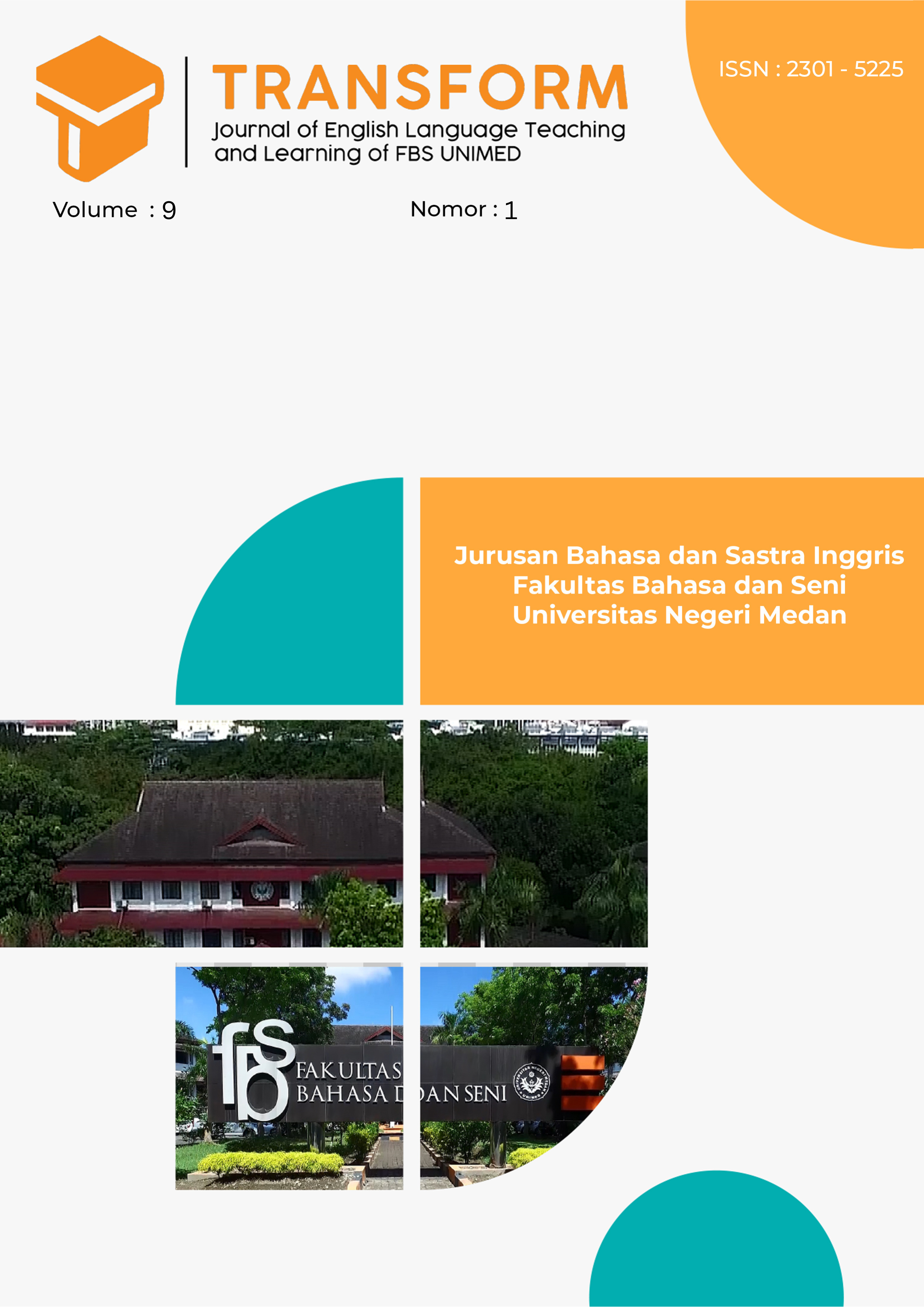STUDENTS™ PREFERERNCES TOWARD TEACHERS™ ORAL CORRECTIVE FEEDBACKS ON SPEAKING AT SMK NEGERI 4 MEDAN
DOI:
https://doi.org/10.24114/tj.v9i1.19961Abstract
The objectives of this study were to investigate the types of teachers™ oral corrective feedback on speaking skill that the students prefer in grade tenth of SMK Negeri 4 Medan. This research used descriptive qualitative method and the data were collected through documentation and interview. The framework undertaken is proposed by Lyster and Ranta and the interview questions were adapted from Thorsteinsen. The data was analyzed in four steps: 1). Data Collection, 2) Data Reduction, 3). Data display, 4). Conclusion and Drawing verification. The findings found that there were 4 kinds of oral corrective feedback that the teachers gave, namely Clarification Request, Elicitation, Explicit Correction, dan Metalinguistic Feedback. The most dominant of teachers™ oral corrective feedback that the students prefer was Explicit Correction. It was 10 data or 41,7%. Based on the analysis interview, the reason why students prefer the type of teachers™ oral corrective feedback on speaking was because it could make the students easy to understand and know the correct anwser not in a long time because the teachers gave it immediately. The finding suggested that the English teacher should give the written feedback to students™ writing task to enable them improve the writing skill.Downloads
Published
22-09-2020
How to Cite
Audry, S., Dewi, N. R., & Annisa, P. S. M. (2020). STUDENTS™ PREFERERNCES TOWARD TEACHERS™ ORAL CORRECTIVE FEEDBACKS ON SPEAKING AT SMK NEGERI 4 MEDAN. TRANSFORM: Journal of English Language Teaching and Learning, 9(1). https://doi.org/10.24114/tj.v9i1.19961
Issue
Section
Articles
License
Copyright (c) 2020 Sonya Audry, Nora Ronita Dewi, Puan Suri Mira Annisa

This work is licensed under a Creative Commons Attribution-ShareAlike 4.0 International License.
Authors who publish with this journal agree with the following terms:
- Authors retain copyright and grant the journal right of first publication with the work simultaneously licensed under a Creative Commons Attribution License that allows others to share the work with an acknowledgment of the work's authorship and initial publication in this journal.
- Authors are able to enter into separate, additional contractual arrangements for the non-exclusive distribution of the journal's published version of the work (e.g., post it to an institutional repository or publish it in a book), with an acknowledgment of its initial publication in this journal.
- Authors are permitted and encouraged to post their work online (e.g., in institutional repositories or on their website) prior to and during the submission process, as it can lead to productive exchanges, as well as earlier and greater citation of published work (See The Effect of Open Access).
- This work is licensed under a Creative Commons Attribution-ShareAlike 4.0 International License.








